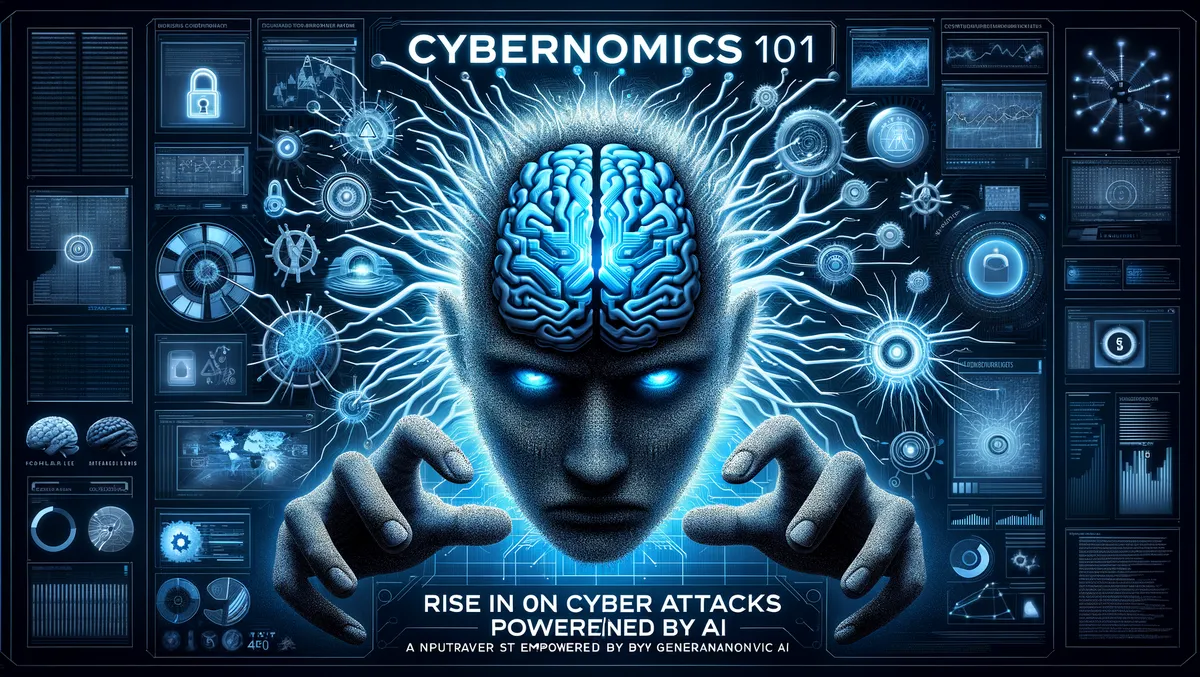Cloud-first security solutions provider Barracuda Networks has released its Cybernomics 101 report, sounding an alert over cybercriminals potentially harnessing Generative AI (GenAI) technology to enhance the volume, sophistication, and effectiveness of their attacks. The study explores the financial dynamics and profit motives behind cyberattacks.
The report offers remarkable insights. For example, almost half of the Australian respondents (48%) believe that AI will enable cybercriminals to launch more attacks. Furthermore, it sheds light on the formidable financial implications of such attacks on businesses. To respond to compromises, the surveyed Australian companies reportedly spent an average of USD $2.7 million annually.
Ransomware attacks were reported by a significant 70% of Australian respondents in the last year, with 58% of these companies having paid the demanded ransom. Commissioned by Barracuda, the independent research firm Ponemon Institute conducted the survey. A diverse group of 1,917 IT security practitioners managing their organisations' IT security functions across various industries worldwide took part in the study.
Ethical hackers among the survey respondents provided valuable insights on the most common attack vectors, as well as which strategies might yield cyber attackers the highest return. By examining these identified vectors, security teams and decision-makers can better comprehend and anticipate potential threats.
Best practices and behaviours by high performers are also discussed within the report. These can act as blueprints for successful cybersecurity strategies. Adopting a platform approach to security, implementing privileged access rights to sensitive data, and creating a practised security incident response plan are among the advisable measures to contain and recover from attacks more effectively.
Fleming Shi, Chief Technology Officer of Barracuda, said, "While the Cybernomics 101 research underscores the harsh reality of suffering a data breach, it also underscores that organisations are not powerless." He also emphasised that "proactive monitoring and attack detection to prevent progression to more severe stages like data exfiltration or ransomware is key. By preparing for these scenarios today, organisations can significantly reduce the impact and cost of these incidents."
In acknowledgement of the evolving threat landscape, Matt Caffrey, Senior Solutions Architect ANZ at Barracuda, stressed the need for organisations to reinforce their security infrastructure and governance practices. He noted: "As cybercriminals continue to refine their tactics, the onus is on organisations to bolster their security infrastructure and governance practices. And with the support of the Australian Government's 'Ransomware Action Plan', announced in October 2023, organisations now have a more robust strategy against evolving cyber threats."
"Emphasising zero tolerance, the plan focuses on preparation, prevention, and a decisive response to disrupt and deter cybercriminals from across the globe. Initiatives like this are fortifying Australia's digital future, fostering resilience and confidence in the face of escalating cyber challenges."
The Ponemon Institute conducted the survey in September 2023, involving 1,917 IT security practitioners from the United States, the United Kingdom, France, Germany, and Australia. The final sample of respondents represented enterprises with a headcount of between 100 and 5,000.



